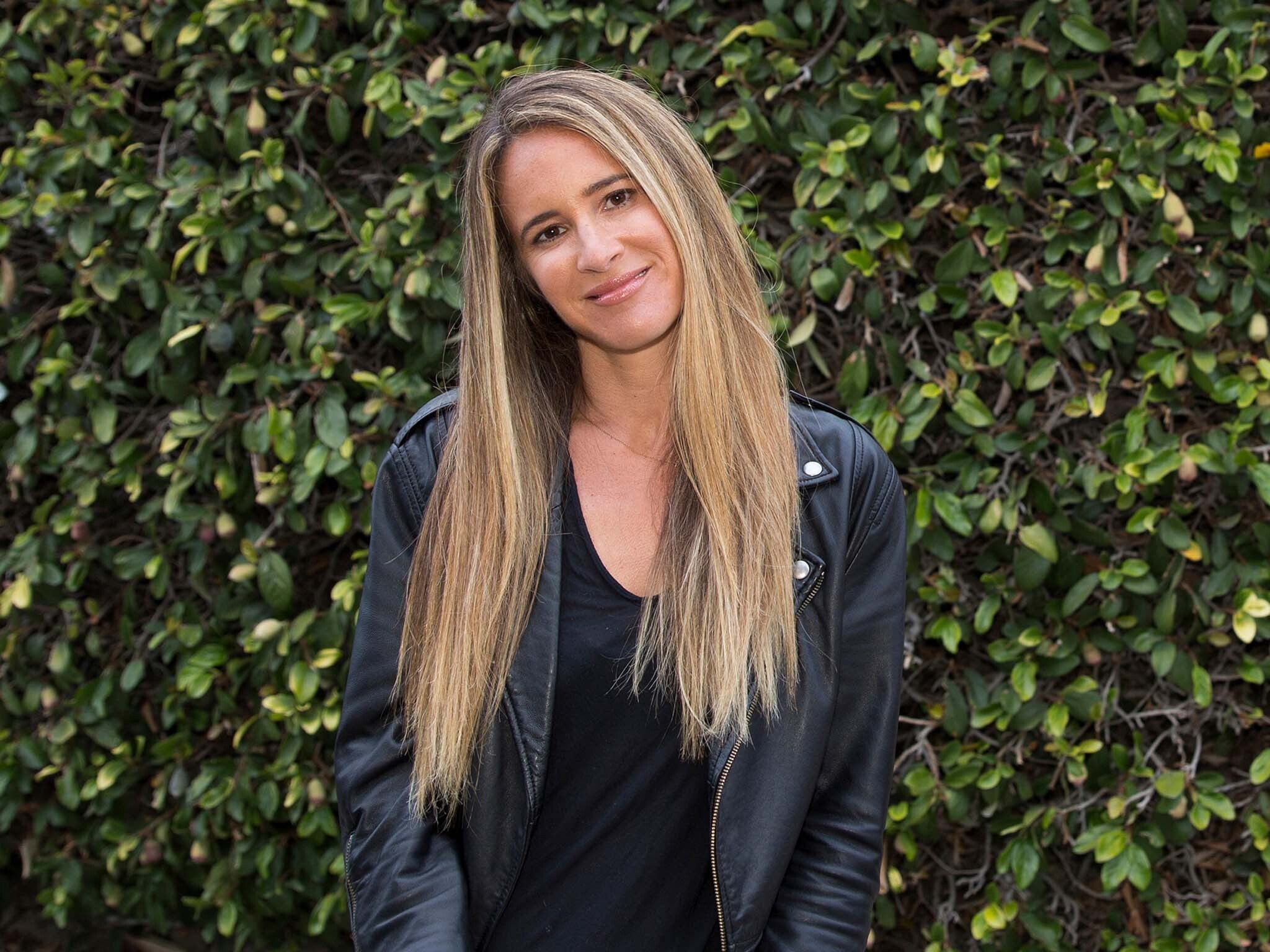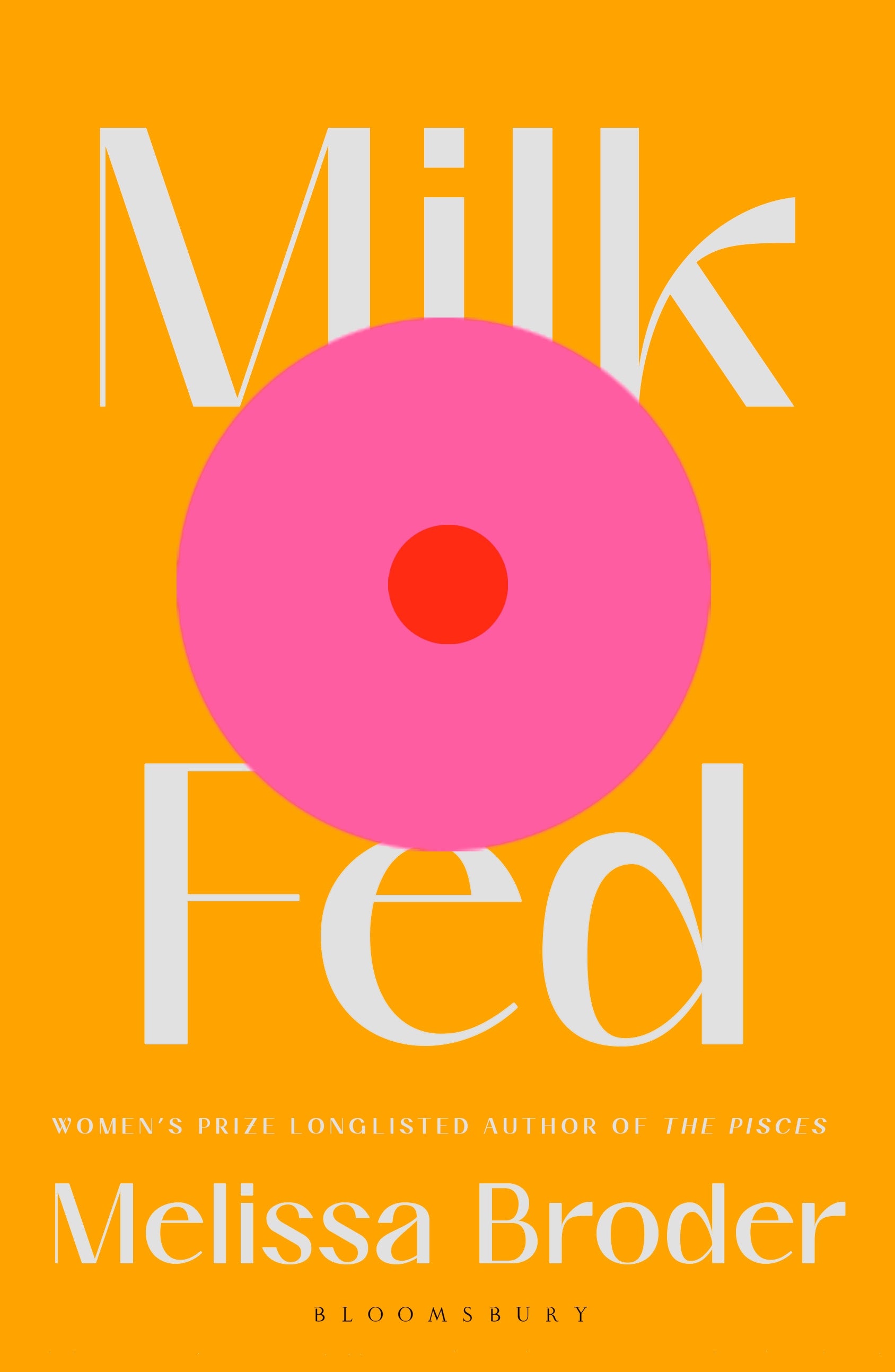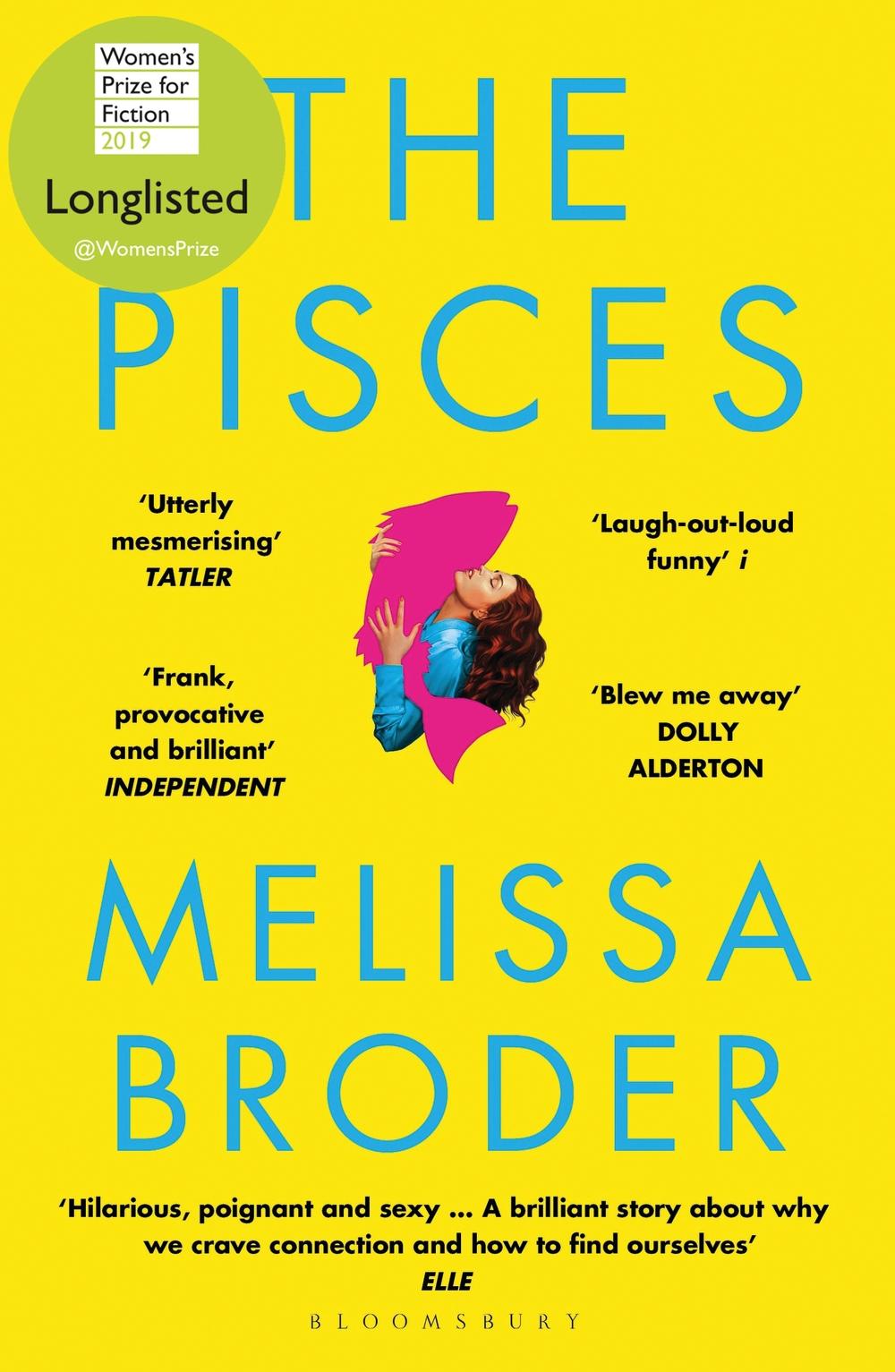Melissa Broder: ‘I just write to turn myself on’
The author of Milk Fed talks to Charlotte Cripps about tackling anorexia in her work, her rescue dog Pickle, and the joy of writing graphic sex scenes


“It’s not a challenge to write the sex scenes,” says Melissa Broder, loosening her long blond hair from its elastic band and letting it fall neatly down her back. “I just write to turn myself on.”
The LA-based author is talking to me via zoom about the erotic material in Milk Fed, her new novel about hunger and sexual desire, which is out next week. “It is raw, and I did open a vein and I know that some of it can be perceived as strange or very dirty,” she continues. “But I’m just me. This has my DNA. It has the blueprint of my soul.”
Broder’s novel – the follow-up to 2018’s The Pisces, which was longlisted for the Women’s Prize for Fiction – is about bisexual 24-year-old Rachel, who is anorexic. It’s deeply personal; Broder is 17 years clean and sober and has had her own struggles with an eating disorder. But while it’s a funny and candid account of a woman obsessed with calorie restriction (“I’ll have the sugar-free, fat-free cappuccino swirled with the sugar-free, fat-free cheesecake,” says Rachel), Broder writes most boldly about the graphic sex and sexual fantasies of her protagonist.
Was it meant to titillate the reader? “I think it is fun to imagine a reader being turned on,” says Broder with a coy smile, stroking her rescue dog Pickle, who is sitting on her lap wearing a green zip-up jacket. “I always take it as a compliment when people say they had to stop and... you know... take a moment, if you will.”
Broder dictated the novel into her phone using Siri while driving her car, “liking the feeling of motion”, before getting it onto the page. It never occurred to her to hold back. She describes Rachel’s frequent masturbating sessions – in one instance, a fantasy about her work colleague Ana, a maternal figure. “Then she let her tits dangle over my face. I suckled each one, thinking, ‘Feed me, Mommy! So that I may live!’ ... Her legs straddled my thigh. Then she began to ride me.”

“I try not to censor myself at all, I just let it rip,” says Broder, whose novel reads fast and effortlessly, with short, sharp chapters of only three or four pages. “I just edited the s*** out of it. I tortured my sentences so the reader didn’t have to be tortured. It’s not Middlemarch.”
Broder relishes the idea of changing the psychological state of her readers. “A lot of art does that – and music can change your brain chemistry – so it’s interesting to think about creating desire in people,” she says. “But I think I was just telling the truth of the story as it was coming to me. I had to later grapple with the fact that ‘Oh my God, my aunt is going to read this’. My parents don’t read my work, thank God.”
Broder, who was born in Pennsylvania, is wearing a gold necklace that spells out her husband’s name, “Nicky”. The pair moved to LA from New York just over seven years ago, in the hope that the warmer climate would help her husband’s chronic neuroimmune disease – a condition that leaves him bedridden for months.
Their home in Laurel Canyon is surrounded by “a lot of squirrels, deer, opossums, and a couple of coyotes”, which means Pickle – “probably a cross between a Chihuahua, Dachshund, and Jack Russell” – is “permanently on lockdown” so he doesn’t get into any danger.
“Our eyes met through a chain link fence of an animal rescue,” says Broder when I ask how Pickle joined the family. He already had a foster owner, but when Broder was asked on the adoption form what sort of dogs she wanted, she simply wrote “Pickle”. Three days later, she got lucky. “They were like, ‘Pickle’s foster mum is going to Japan.’ I was like, ‘Bring him to me!’” she explains, between chews of nicotine gum.
It’s the same gum Rachel consumes in Milk Fed to “skilfully restrict” her food intake. “It’s my last vice,” says Broder. “I drink a lot of Coke Zero and coffee too.”
The book is not autobiographical, but it may as well be. “I would say my oldest and longest relationship is my strange relationship with food,” says Broder. “And I’ve been through most of the permutations.” She became anorexic in high school, and although she has recovered from it, still discusses recovery as an “ongoing journey”.
Her first-hand experience of the endless cycles of starving and binging are brought vividly to the page. “I think once you’ve had a food disorder, you have a PhD in it,” she says. “It’s like you become an encyclopedia. So it was very easy for me to access all this information – all the feelings and stuff.”
Milk Fed is a familiar story to anybody who has suffered from an eating disorder, and troubling to read if you have not. Early in the novel, Broder’s Rachel explains: “All that mattered was what I ate, when I ate, and how I ate it.” Her life revolves around trips to Yo! Good for her daily serving of a 16-ounce no-topping yoghurt.
It’s here that Rachel meets Miriam, an Orthodox Jew. Miriam doesn’t know about Rachel’s anorexia, but is intent on feeding her and helps her to find self-acceptance through sex and food. “Miriam is not the medicine – it’s not that linear,” says Broder. “It’s a catalyst towards her becoming more of herself and getting closer to a god or a power that she can believe in; an inner resource. It’s not an external fix.”
She should know. Broder spent her twenties looking for answers “from a million psychics and astrologers”. “Actually, the idea that the answer is already there – that it is already inside you – is very healing for me,” says Broder. She calls anorexia “a warped idea of perfection” that was “self-imposed”. “I don’t think I have ever been in a relationship with somebody who was telling me to be thinner.”
But like Rachel in her novel, Broder struggles with the self-love industrial complex. “We have things like Goop,” she says, referring to Gwyneth Paltrow’s controversial wellness brand. “Everything is about loving yourself. It’s presented like there is this place that you arrive at where you are whole and baked; you are done. The timer goes off. For me, I found that recovery is a journey, but that’s where the juice is.”
For Broder, recovery is “a balancing act”. “Certainly, I wouldn’t say I have an effortless relationship with food. I would say it’s a long and complicated relationship.”

Does she think the pressure on women to be thin is changing? “In fashion, it’s allegedly changing, but it’s not really,” she says. “It’s always still an exception when a model is bigger – it’s always presented as somebody who is groundbreaking.”
Broder suffered from depression and anxiety from the age of 12. After a series of panic attacks in 2012 while working as a publicity manager for Penguin, she started tweeting funny insights about her angst-ridden state of mind from the anonymous account @sosadtoday.
Tweets such as “Keep calm and disappoint your family” and “If I’m relatable, you’re f***ed” have attracted 1 million followers, including Miley Cyrus and Katy Perry.
In a 2015 Rolling Stone interview, Broder revealed herself as the author of the tweets; by then she was fairly established as a poet. She’s the author of four poetry collections, including her latest, 2016’s Last Sext, a primal and dark exploration of longing and death. Her series of brilliant essays in 2016’s So Sad Today based on her Twitter account are confessionals about her former addictions, therapy, and her open marriage.
Like Milk Fed, her 2018 debut Pisces was darkly erotic – a love story between a woman and a merman. She also turned her hand to the fictional horoscopes for Lena Dunham’s online feminist newsletter Lenny Letter until 2018, and she is writing a TV pilot for Milk Fed as we speak.

Broder used to reply to every email she got from her @sosadtoday Twitter account, but now it’s set to away. “Sometimes people will email drunk with their entire sob story,” says Broder. “I’m not a professional; I’ve got enough shit. I can’t deal with your random-ass shit. But sometimes I will get an email and I’m like, ‘I feel like I have some experience’ and I will email back.”
Why do people go to Broder with their problems? “I think I’m a very non-judgmental person,” she says. “I think when you are forthcoming about your own struggles, people then feel comfortable coming to you with theirs.”
‘Milk Fed’ is out 4 March



Join our commenting forum
Join thought-provoking conversations, follow other Independent readers and see their replies
Comments